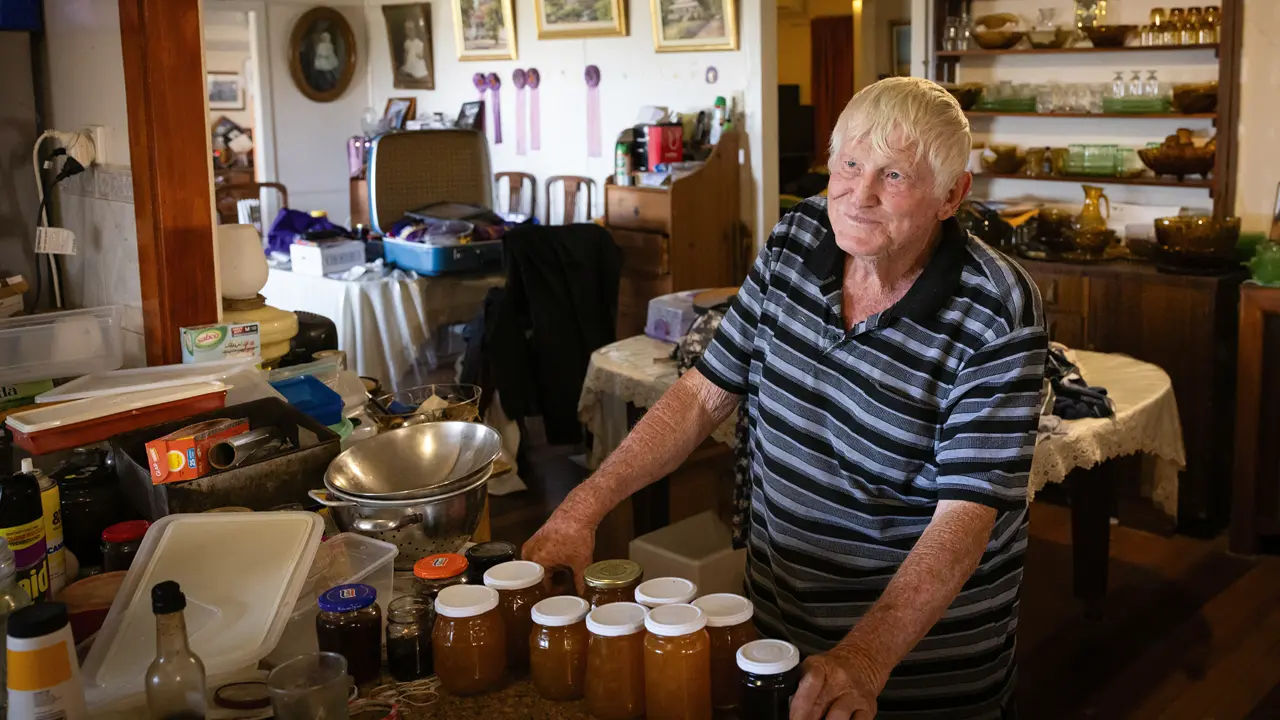After turning his back on the corporate world and learning to weld, Neil Turner started making gates and ended up making a statement.
Story By Kathy Mexted
Neil Turner starts the week by single-handedly hoisting a three-metre steel gate from the back of his truck. Positioning the gate with one hand, he kicks a wedge underneath it, chatting in a Staffordshire accent that cuts the cold autumn air above the whine of the power drill.
Hanging gates is a well-rehearsed routine for Neil, who estimates he has made about
50 since learning to weld five years ago. Marrying his engineering disciplines with some creative expression no doubt inherited from his artist mother, Neil fashions the gates at home in his shed. They are one facet of his business, Garth Gates and Entrances, based at Woodend in Victoria’s Macedon Ranges.
It’s a long way from his former life in Britain’s corporate world where, after 10 years as a civil engineer, he declared, “I can’t just stay single and go to the pub till I’m 60,” and so began a round-the-world trip in 1989, with no real agenda other than to get out of London and his Armani suit.
An ad for half-a-day’s work on a cell-grazing farm in New Zealand became two years of building decks, sheds and shearers’ quarters. From New Zealand he came to Australia where he met and married Michelle and settled near Woodend, north-west of Melbourne.
The entrance to their property, “Garth”, is a showcase for Neil’s diverse talents, and starts with a steel letterbox set into a large solid rock. A stone entry with iron gates precedes the post and rail-lined drive, and as you pull up beside the impressive, historic 1847 home, you can’t help wondering, “How the hell did he get the letterbox into that rock?”
Once settled in Australia, Neil says he briefly considered a return to his past career, but country life proved far more appealing. In 1997, with Michelle’s support, he opted instead to start a fencing business and recalls, “Working farms in our area were being subdivided into ‘lifestyle’ blocks and the demand for fencing increased significantly. I really didn’t want to be commuting or wearing a suit every day. I’d rather be home with my family and running my own show, so I borrowed a heap of money and set up as a fencer.”
This story excerpt is from Issue #67
Outback Magazine: Oct/Nov 2009









